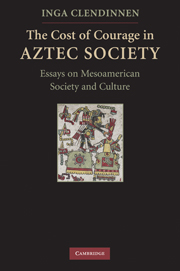2 - “Fierce and Unnatural Cruelty”
Cortés and the Conquest of Mexico
Published online by Cambridge University Press: 05 August 2012
Summary
The conquest of Mexico matters to us because it poses a painful question: How was it that a motley bunch of Spanish adventurers, never numbering much more than four hundred or so, was able to defeat an Amerindian military power on its home ground in the space of two years? What was it about Spaniards, or about Indians, that made so awesomely implausible a victory possible? The question has not lost its potency through time, and as the consequences of the victory continue to unfold has gained in poignancy.
Answers to that question came easily to the men of the sixteenth century. The conquest mattered to Spaniards and to other Europeans because it provided their first great paradigm for European encounters with an organized native state; a paradigm that quickly took on the potency and the accommodating flexibility of myth. In the early 1540s, a mere twenty years after the fall of Mexico-Tenochtitlán before the forces led by Hernando Cortés, Juan Ginés Sepúlveda, chaplain and chronicler to the Spanish emperor Charles V, wrote a work that has been described as “the most virulent and uncompromising argument for the inferiority of the American Indian ever written.” Sepúlveda had his spokesman recite “the history of Mexico, contrasting a noble, valiant Cortés with a timorous, cowardly Moctezuma, whose people by their iniquitous desertion of their natural leader demonstrated their indifference to the good of the commonwealth.”
- Type
- Chapter
- Information
- The Cost of Courage in Aztec SocietyEssays on Mesoamerican Society and Culture, pp. 49 - 90Publisher: Cambridge University PressPrint publication year: 2010
References
- 2
- Cited by



